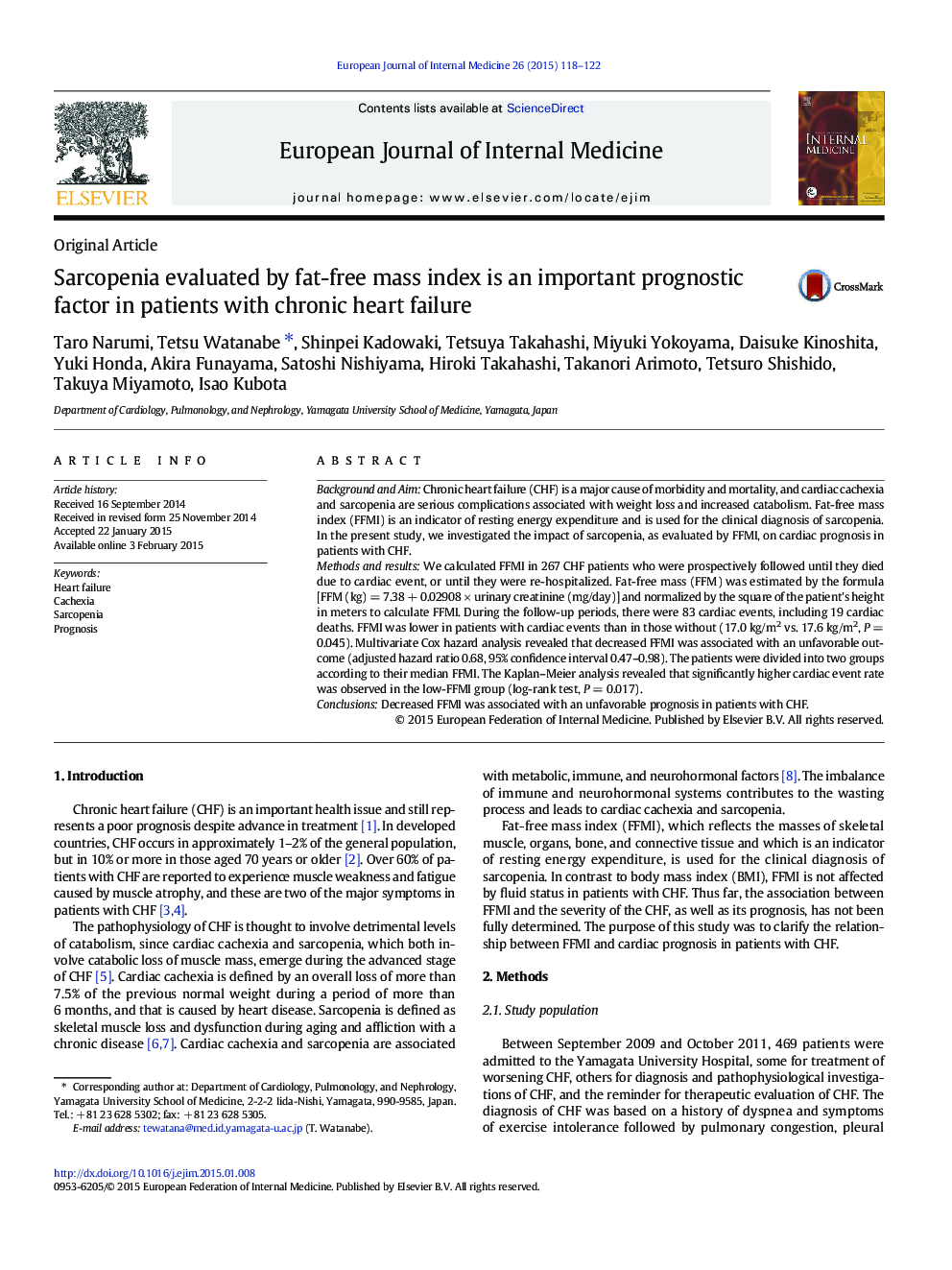| کد مقاله | کد نشریه | سال انتشار | مقاله انگلیسی | نسخه تمام متن |
|---|---|---|---|---|
| 3466426 | 1596548 | 2015 | 5 صفحه PDF | دانلود رایگان |
• Decreased fat-free mass index was associated with an unfavorable cardiac prognosis.
• Fat-free mass index was higher in control subjects than in chronic heart failure patients.
• Fat-free mass indexes in NYHA functional class II and III/IV patients were lower than for class I.
• Fat-free mass index was not correlated with the level of serum BNP.
• A relatively high cardiac event rate was observed in the low fat-free mass index group.
Background and AimChronic heart failure (CHF) is a major cause of morbidity and mortality, and cardiac cachexia and sarcopenia are serious complications associated with weight loss and increased catabolism. Fat-free mass index (FFMI) is an indicator of resting energy expenditure and is used for the clinical diagnosis of sarcopenia. In the present study, we investigated the impact of sarcopenia, as evaluated by FFMI, on cardiac prognosis in patients with CHF.Methods and resultsWe calculated FFMI in 267 CHF patients who were prospectively followed until they died due to cardiac event, or until they were re-hospitalized. Fat-free mass (FFM) was estimated by the formula [FFM (kg) = 7.38 + 0.02908 × urinary creatinine (mg/day)] and normalized by the square of the patient's height in meters to calculate FFMI. During the follow-up periods, there were 83 cardiac events, including 19 cardiac deaths. FFMI was lower in patients with cardiac events than in those without (17.0 kg/m2 vs. 17.6 kg/m2, P = 0.045). Multivariate Cox hazard analysis revealed that decreased FFMI was associated with an unfavorable outcome (adjusted hazard ratio 0.68, 95% confidence interval 0.47–0.98). The patients were divided into two groups according to their median FFMI. The Kaplan–Meier analysis revealed that significantly higher cardiac event rate was observed in the low-FFMI group (log-rank test, P = 0.017).ConclusionsDecreased FFMI was associated with an unfavorable prognosis in patients with CHF.
Journal: European Journal of Internal Medicine - Volume 26, Issue 2, March 2015, Pages 118–122
